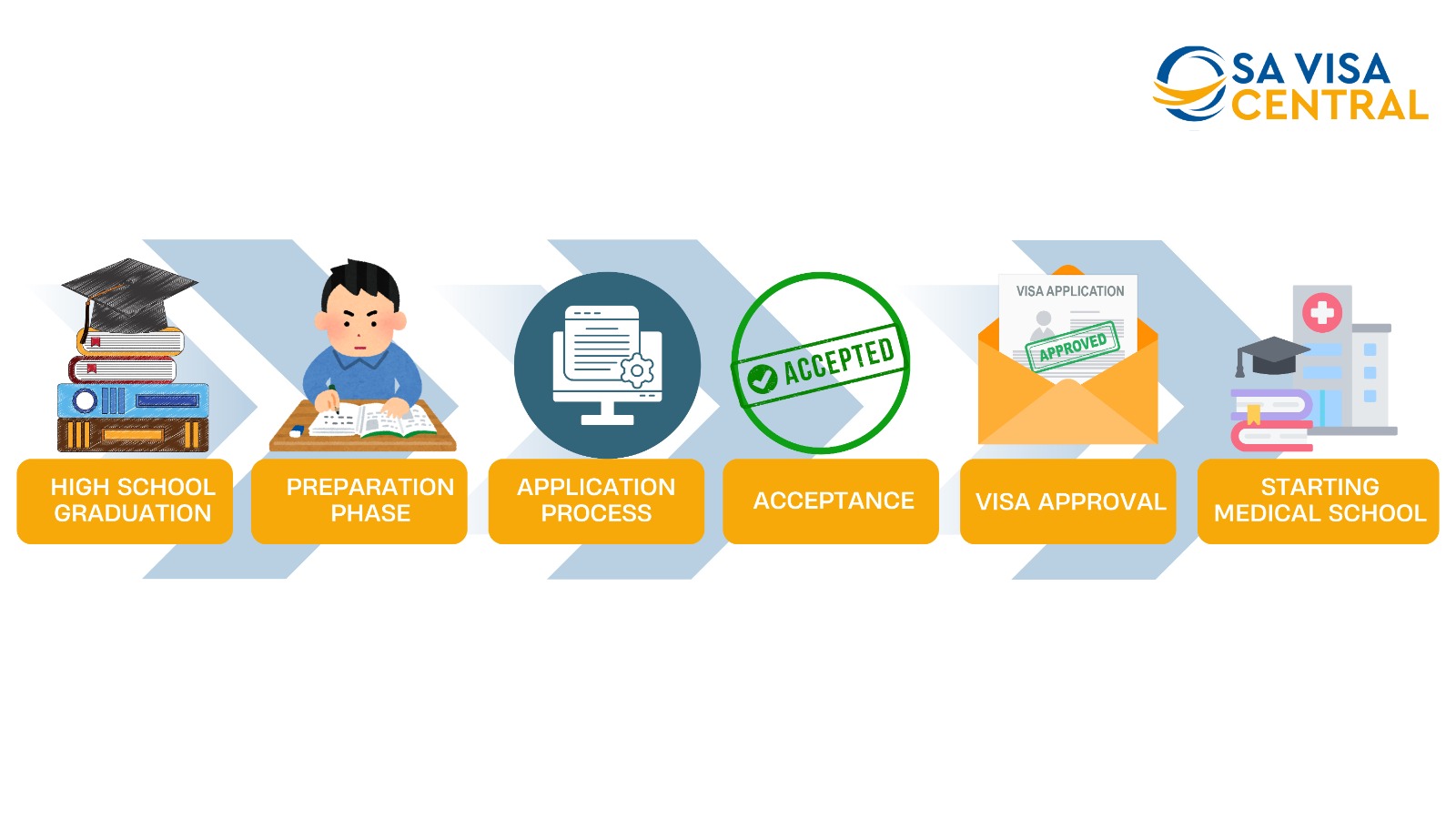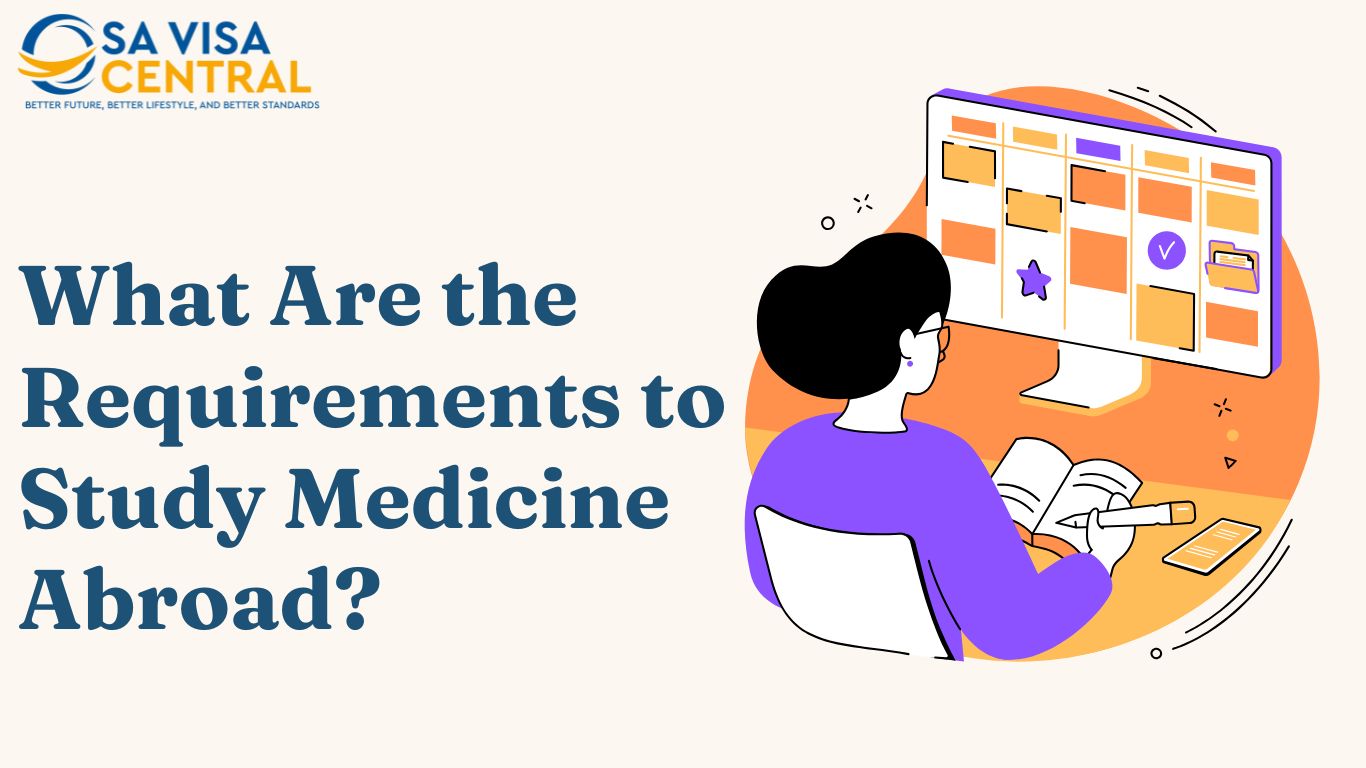Pursuing a medical degree abroad can be an enriching experience that opens doors to international opportunities. However, navigating the requirements for different countries can feel overwhelming. Let’s break down what you need to know about studying medicine in some of the most popular destinations.

Table of Contents
Study Medicine Abroad: Country-Wise Breakdown
United States (USA)
The journey to become a doctor in the USA is slightly varied, entailing completion of a first undergraduate degree. Prerequisites include as per the AAMC:
Prerequisites:
- Bachelor’s degree in which pre-med courses are complete
- Test scores for the Medical College Admission Test
- An undergraduate GPA of 3.5-3.7
- Letters of recommendation
- Extensiveness of clinical experience or volunteering
According to the US News & World Report, tuition expenses for international students range from $60,000 to $100,000 a year, while the length of the programs would be four years post-undergraduate studies.
United Kingdom (UK)
Via the UK, there is a more direct approach to studying medicine. Requirements usually include:
Prerequisites:
- A-Levels or equivalents-have to be taken with emphasis on Biology and Chemistry
- UCAT or BMAT scores
- IETLS score of 7.0 or higher
- Personal statement
- Reference letters
British programs in medicine generally take 5-6 years. The General Medical Council also emphasized the importance of knowing about the registration process for these international medical graduates.
Canada
With high competitiveness among international students for admissions to Canadian medical schools, further details are stipulated in the items set out by the Association of Faculties of Medicine of Canada:
Prerequisites:
- Bachelor degree with specified science courses
- MCAT scores (in some cases higher than US requirements)
- Proof of English/French proficiency.
- CASPer test completion.
- Strong extracurricular activities.
Some provinces have restrictions on admission for international students; according to Universities Canada, tuition hovers between CAD 30,000-100,000 annually.
Singapore
The medical education system of Singapore is hugely renowned for its excellence. Requirements for institutions such as National University of Singapore (NUS) are:
Prerequisites:
- Good A level or equivalent.
- BMAT scores.
- Good academic background in science.
- Good command in English (IELTS 7.0 or above).
- A good interview.
The Singapore Medical Council stipulates that international applicants must condition themselves to some very high academic ideals and understanding of local healthcare contexts.
Bangladesh
Medical education in Bangladesh enthusiastically welcomes international students, mostly in the case of private medical colleges. The Bangladesh Medical & Dental Council provides the following specifications.
Prerequisites:
- Higher Secondary Certificate (HSC) or equivalent
- Minimum 50 percent marks in Biology, Chemistry, and Physics
- NEET scores (for a few institutions)
- English language proficiency
- Medical fitness certificate
Also Read : Post-Study Work Opportunities: Maximizing Your Study Visa
Study Medicine Abroad: General Requirements Across Countries
Certain norms, regardless of destination, form a universal commonality:
- Academic Excellence: Strong bases in sciences; scoring well in either high school or pre-university; and an acceptable standardized score.
- Language Proficiency: They require scores in IELTS/TOEFL; and may set up extra language requirements in case it is a non-English-speaking country.
- Financial Requirements: Proof of sufficient funds; scholarships, which may assist; the provision of living expenses.
- Health and Background checks: Medical screening; reports from vaccination; and background check for criminal record.
Tips for Prospective Medical Students
1. Start Early
- Do thorough research on the intended country for study where different requirements for admission may prevail.
- Prepare for standardized tests way ahead of time.
- Consider Costs
- Look for scholarships
- Add on living expenses
- Emergency funds
- Understanding Cultural Differences
- Familiarize yourself with the healthcare systems operating in your host countries.
- Think about the possible language barriers.
- Prepare yourself for different modes of teaching.
- Documentation
- Ensure that authentication for all academic documents is secured.
- Translations to be carried out if necessary.
- Keep several copies of important documents.
Also Read : Navigating the Study Visa Application Process: Dos and Don’ts
Ready to Begin Your Medical Education Journey? Let SA VisaCentral guide you every step of the way – from choosing the right country to securing your admission. Our expert team specializes in making international medical education dreams a reality. Contact us today for a free consultation and take the first step towards your medical career abroad.








